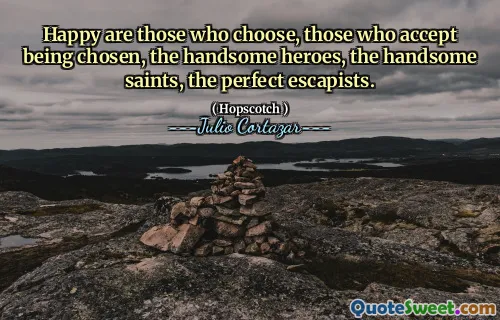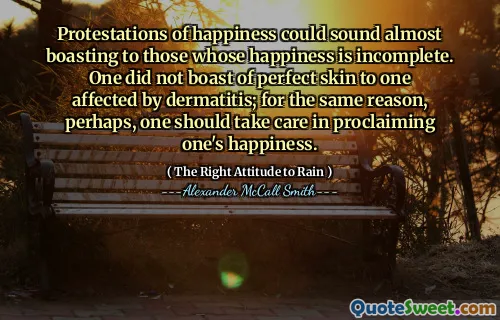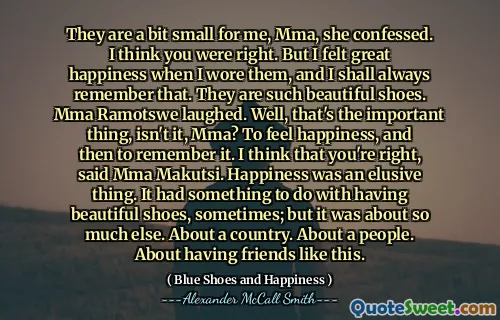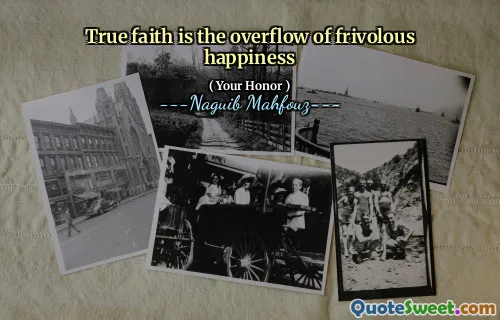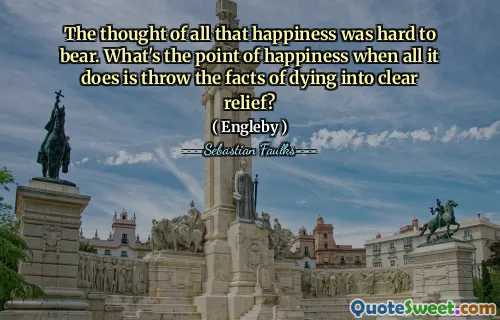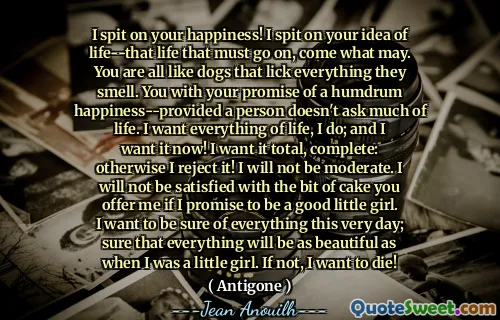
Happy are those who choose, those who accept being chosen, the handsome heroes, the handsome saints, the perfect escapists.
This quote delves into the complex nature of happiness and individual agency. It suggests that true contentment often arises from a conscious decision—either actively choosing one's path or embracing the circumstances in which one finds themselves. The mention of 'those who choose' emphasizes empowerment and autonomy, reinforcing the idea that happiness is linked to intentionality and deliberate action. Conversely, 'those who accept being chosen' highlights a form of grace or humility, where happiness stems from surrendering control or embracing one's fate without resistance.
The reference to 'handsome heroes, the handsome saints' introduces a dichotomy between outward perception and inner virtue. Heroes and saints often symbolize moral strength, attractiveness, and nobility, implying that societal ideals associate certain virtues with happiness. However, overStreet the phrase 'the perfect escapists', the quote introduces the concept of evading reality by escaping into imagination, dreams, or alternative realities. This suggests that sometimes, happiness is found not by confronting life's challenges but by creating mental or emotional havens.
The interconnectedness of choice, acceptance, heroism, sanctity, and escapism underscores the multifaceted approach to understanding happiness. It prompts reflection on whether happiness is a result of active engagement with life or a serene acceptance of circumstances. The idea resonates with existential themes, emphasizing personal responsibility while acknowledging the human tendency to seek comfort and meaning through various means. Ultimately, the quote invites deeper thought on how we navigate our internal desires and external pressures in pursuit of fulfillment.
-- (Hopscotch) -- Julio Cortazar
